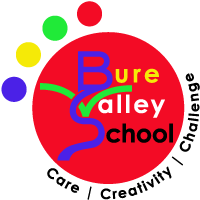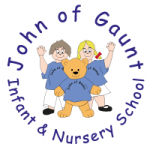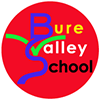As a school, we are committed to providing our pupils with a stimulating and broad curriculum that prepares them for their next steps in education. At the heart of this is our focus on assessment, which helps us track the progress of our pupils and ensure they are reaching their full potential.
National Curriculum and Year Group Expectations
At Bure Valley, we follow the National Curriculum, which sets out clear year group expectations for the majority of pupils. Throughout their time with us, children will be given a ‘level’ that indicates their progress within the curriculum:
- Working Towards (WT): The pupil is working below the expected level for their year group.
- Expected/Working At (WA): The pupil is working at the expected level for their year group.
- Greater Depth (GD): The pupil is working above the expected level for their year group.
Our aim is for the majority of our pupils to be working at the ‘Expected’ level, as this demonstrates a secure understanding of the curriculum for their year group. We set aspirational targets for our children and encourage them to make additional progress as they move through Key Stage 2.
Formal Assessments
Formal assessments play an important role in tracking our pupils’ progress and attainment. These include:
- Baseline Assessment: Completed at the start of Reception, this assessment helps us determine the progress each child should make by the end of Key Stage 2.
- Year 4 Multiplication Check: An online assessment that tests fluency in times tables.
- End of Key Stage 2 Tests (Year 6): These include tests in Grammar, Punctuation and Spelling, Reading, and Maths. There will be no writing test, as this will be teacher assessed and moderated.
The Key Stage 2 tests are scored out of 120, with children expected to achieve a minimum score of 100. These results, along with the progress children make from their Key Stage 1 baseline, are used to measure the school’s performance.
For more information on national curriculum assessments, please visit the government’s website.
Internal Summative and Formative Assessment
Our assessment practices play a crucial role in allowing us to monitor progress, identify areas for improvement, and tailor our teaching to the unique needs of our pupils.
Standardised Assessments
At Bure Valley, we utilise a variety of standardised assessments to gauge our pupils’ progress and attainment. These include:
- Cognitive Ability Tests (CATs): All pupils in Year 3 are assessed using CATs, which provide valuable insights into their potential across different areas of learning.
- Wellcomm Screening: This speech and language assessment helps us identify any communication or interaction concerns early on, enabling us to provide targeted support.
- Phonics Screening: Building on the data from Key Stage 1, we screen specific pupils on entry to ensure they receive the necessary phonics intervention.
- Renaissance Star Reading and Maths: These adaptive assessments are taken termly, providing us with detailed data on each child’s progress, including reading age, standardised scores, and scaled scores.
- Rising Stars Termly Tests: All pupils, except those with identified SEND, take these standardised tests in maths, reading, and SPAG (spelling, punctuation, and grammar) each term.
The data from these assessments is closely monitored to inform decisions about interventions, support, and future planning.
Formative Assessment
In addition to our summative assessments, Bure Valley places a strong emphasis on formative assessment as an integral part of the teaching and learning process. Our teachers utilise a range of strategies, such as:
- Observing pupils’ responses during lessons
- Asking probing, open-ended questions
- Reviewing written work
- Facilitating self-assessment and peer critique
- Incorporating daily reflection and retrieval starters and activities
These formative assessment practises allow our teachers to gather real-time evidence of learning, identify gaps, and adjust their instruction accordingly. Feedback is then provided to pupils, empowering them to take ownership of their progress and supporting our vision of “Care, Creativity & Challenge.”
Writing Assessment
At Bure Valley, we have developed a robust system for assessing and moderating pupils’ writing. Teachers regularly update individual writing evidence records, using our agreed school standards to judge whether a child is working towards, at, or beyond the expected level. This process involves collaborative moderation within year groups, across the school, and with colleagues in the local cluster.
Maths Assessment
In addition to the standardised test data, our teachers use key performance indicators to inform their assessment of pupils’ progress in maths. Any significant discrepancies between the test results and teacher judgments are closely tracked and addressed.
Feedback and Next Steps
At Bure Valley, we believe that high-quality instruction and formative assessment are the foundations for effective feedback. Our teachers use their professional judgement to determine the most appropriate feedback methods, ensuring that they address learning gaps and support each child’s progress.
Assessing Progress in Foundation Subjects
At Bure Valley, we believe that a broad and balanced curriculum is essential for the development of our pupils. Alongside the core subjects of English, Maths, and Science, our pupils engage with a wide range of foundation subjects, including History, Geography, Art, Music, and more.
To ensure that our pupils are making progress in these important areas, our teachers assess their attainment against the expectations outlined in the National Curriculum and our own subject-specific objectives. These assessments are recorded on our school’s information management system (SIMS) and used to inform our planning, curriculum reviews, and end-of-year reports.
Using Assessments to Inform Teaching and Learning
By closely monitoring our pupils’ progress in the foundation subjects, we are able to identify areas of strength and areas for development. This information is invaluable in helping our teachers to tailor their lessons and provide targeted support where needed. Subject leaders also use these assessments to review the effectiveness of their curriculum areas and make any necessary adjustments.
Importantly, our assessment approach is underpinned by our school’s cooperative and ethical values. We strive to create a nurturing environment where all pupils feel safe, respected, and empowered to take risks and challenge themselves. By celebrating their successes and supporting them through any difficulties, we aim to instil a love of learning that will stay with them long after they leave Bure Valley.
Keeping Families Informed
As part of our commitment to working in partnership with our families, we share information about our pupils’ progress in the foundation subjects through our end-of-year written reports. These reports provide a comprehensive overview of each child’s achievements and areas for further development, helping parents and carers to support their child’s learning at home.
At Bure Valley, we are proud to offer a rich and engaging curriculum that prepares our pupils for their next steps in education and beyond. By maintaining a robust system of assessment and feedback, we ensure that every child has the opportunity to thrive and reach their full potential.



